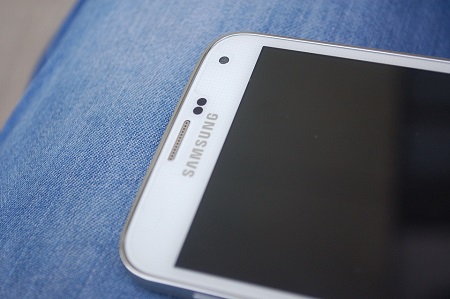The 2016 Digital Payments Study showed a rapidly rising number of consumers using smartphones to pay.
The 2016 Digital Payments Study from Visa revealed insight into European mobile payments trends. It showed that there has been a spike in the number of people using smartphones as wallets. In fact, the number of people using this type of transaction has tripled since 2015.
At the time of the research, 54 percent of consumers were using mobile payments on a regular basis.
The research indicated that European mobile payments were regularly used by over half of consumers. Comparatively, at the same time the year before, only 18 percent of consumers were using mobile wallets to pay for goods and services.
 This research involved the participation of over 36,000 online consumers in Europe. They resided in any of 19 different countries in the continent. The study showed a dramatic shift in the use of mobile payments technology over the prior 12 months.
This research involved the participation of over 36,000 online consumers in Europe. They resided in any of 19 different countries in the continent. The study showed a dramatic shift in the use of mobile payments technology over the prior 12 months.
The European mobile payments research also indicated that more people are open to trying the tech.
Last year at the same time, 38 percent of respondents had never used mobile payments and had no intention of ever trying it. This year’s figure has dropped to 12 percent. Clearly, far more people are interested in trying the use of mobile devices to pay for products and services.
There were two countries in which it was most obvious that there was a very large increase in mobile wallet use and interest. These two countries were Turkey and Romania. They have been adopting this technology at a staggering rate.
That said, the United Kingdom stood out as a market where there was a very large percentage of smartphone users who also used mobile payments. In the U.K., 74 percent of device owners had tried mobile wallets. Over half of the people who had tried the tech (59%) had done so to transfer money to friends and family. Slightly fewer (45 percent) had used it for purchasing take-out at restaurants.
A new trend in European mobile payments has also started to develop. Within it, consumers have revealed that they are increasingly comfortable in using their mobile devices to make more expensive purchases.
Several reports indicate that the Korean electronics company is suspending production of the device.
Since the Samsung Galaxy Note 7 launch, the company has faced one nightmare after the next. The problems may have just reached a new high point. Yonhap News, the largest news agency in South Korea, reports a suspension of the company’s flagship smartphone.
The South Korean News agency cited a source inside Samsung’s supply chain.
The source, who remained anonymous, explained that “This measure includes a Samsung plant in Vietnam that is responsible for global shipments (of the Galaxy Note 7).” At the time of the writing of this article, an official confirmation of the suspension of Samsung Galaxy Note 7 production had not been made.
 That said, it would not be impossible to believe that this step would be taken. The new flagship smartphone from Samsung has seen nothing but problems since its first launch. This included safety problems in the United States.
That said, it would not be impossible to believe that this step would be taken. The new flagship smartphone from Samsung has seen nothing but problems since its first launch. This included safety problems in the United States.
Both AT&T and T-Mobile stopped selling the Samsung Galaxy Note 7 when several caught fire.
There were five separate incidents in the United States in which the Samsung smartphones caught fire. This was reportedly a problem with the battery. Moreover, an Australian telecom company called Telstra may also be doing the same thing. The Verge reported that it had access to a memo from the company saying the Galaxy Note 7 would soon be withdrawn not only from its own shelves, but from stores worldwide.
As published on The Verge, the memo explained that “Samsung has temporarily paused the supply of new Galaxy Note 7 smartphones following a reported incident in a replacement phone in the US. Samsung is confident in the replacement Note 7 and says they have no reason to believe it’s not safe.” That said, it also indicated that it would be progressing to create a “replacement Note 7.” No further information was shared about that mobile device.
On October 10th, Reuters reported that the electronics giant confirmed it would be “adjusting shipment volumes.” This move was being made to give the company the opportunity to hold in-depth inspections and to ensure proper quality control was in place. That said, it did not say anything further about ceasing the production of its product.
 This research involved the participation of over 36,000 online consumers in Europe. They resided in any of 19 different countries in the continent. The study showed a dramatic shift in the use of mobile payments technology over the prior 12 months.
This research involved the participation of over 36,000 online consumers in Europe. They resided in any of 19 different countries in the continent. The study showed a dramatic shift in the use of mobile payments technology over the prior 12 months.
 That said, it would not be impossible to believe that this step would be taken. The new flagship smartphone from Samsung has seen nothing but problems since its first launch. This included safety problems in the United States.
That said, it would not be impossible to believe that this step would be taken. The new flagship smartphone from Samsung has seen nothing but problems since its first launch. This included safety problems in the United States.